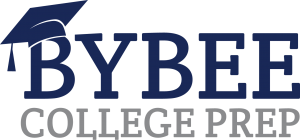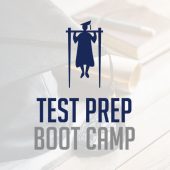Understanding Holistic Admissions: Beyond GPA and Test Scores
In today’s competitive college landscape, many parents are surprised to learn that top grades and high test scores alone no longer guarantee admission. Colleges and universities are increasingly turning to a holistic college admissions process to evaluate applicants. But what does that really mean for your college-bound teen?
This guide will help you understand how holistic admissions work, why they matter, and how your child can stand out by showcasing more than just academic achievements.
What is the Holistic College Admissions Process?
The holistic college admissions process is an approach where admissions officers review the “whole” applicant—not just their GPA and standardized test scores. While academic performance remains important, schools also consider personal qualities, experiences, and potential contributions to campus life.
While academic performance remains important, schools also consider personal qualities, experiences, and potential contributions to campus life.
However, it’s important to understand that while holistic admissions aim to view students beyond numbers, many qualitative factors—like essays, recommendations, and extracurriculars—are still assigned scores or ratings. This structured evaluation helps colleges compare thousands of applicants efficiently, meaning that even in a holistic process, students are ultimately distilled down to a set of quantified assessments.
Many selective institutions, including Ivy League schools and liberal arts colleges, rely on holistic admissions to build diverse, dynamic student bodies.
Key Factors Beyond GPA and Test Scores
Understanding what colleges look for can help your teen present a compelling application. Here are the main components evaluated in a holistic review:
- Personal Essays and Statements
Essays offer a window into your child’s personality, values, and life story. A well-crafted essay can highlight resilience, passion, or unique perspectives that numbers can’t convey.
that numbers can’t convey. - Letters of Recommendation
Teachers and counselors provide insight into your teen’s character, work ethic, and how they engage in a learning environment. - Extracurricular Activities
Colleges seek students who show commitment, leadership, and initiative. Depth matters more than breadth—consistent involvement in a few meaningful activities often outweighs superficial participation in many. - Community Service and Impact
Demonstrating social responsibility and a willingness to contribute to the community signals maturity and empathy. - Interviews (When Applicable)
Some schools use interviews to assess interpersonal skills, curiosity, and fit for their campus culture. - Personal Background and Context
Admissions officers consider socioeconomic background, family circumstances, and obstacles overcome. This ensures students are evaluated within the context of their opportunities and challenges.
The Growing Role of Test Scores in Today’s Holistic Admissions
While the term test-optional has become common, parents should understand that many selective and highly selective colleges are now test-preferred—strong SAT
or ACT scores can significantly boost an applicant’s chances. Several institutions are reinstating test requirements, and even those that aren’t openly requiring them often favor applicants who provide competitive scores.
With application numbers surging—like the University of Texas receiving over 90,000 applications for Fall 2025—and schools such as Texas A&M capping enrollment growth for the next several years, competition is fiercer than ever. The acceptance rate equation is simple: if the number of spots stays the same (or shrinks) while applications grow, selectivity increases.
In this environment, standardized test scores offer colleges a quick, comparable metric to help manage overwhelming applicant pools. While holistic admissions consider more than academics, strong GPAs, class ranks, and test scores remain critical gatekeepers at many institutions.
What This Means for Your Teen:
Encourage your child to prepare for and take standardized tests seriously. Submitting a solid score can provide a distinct edge, especially when applying to schools where competition is intense. Holistic elements—like essays and extracurriculars—can differentiate strong candidates, but rarely compensate for weak academic indicators in highly selective environments.
Understanding this balance will help your teen present the strongest possible application in today’s evolving admissions landscape.
How Parents Can Help Their Teen Stand Out
Here are actionable ways you can guide your child through the holistic admissions process:
- Encourage Authenticity
Help your teen embrace their true interests rather than pursuing activities just to “look good” on applications. Authentic passion is easy for admissions officers to spot. - Focus on Storytelling
Support your child in reflecting on their experiences to craft compelling essays. Their unique journey is what sets them apart. - Prioritize Quality Over Quantity
It’s better to show deep involvement in a few areas than shallow participation in many. Leadership roles or long-term commitments carry weight. - Foster Strong Relationships with Educators
Recommendations matter. Encourage your teen to engage meaningfully with teachers and counselors who can advocate for them. - Highlight Personal Growth
Whether overcoming challenges or pursuing a passion, growth narratives resonate strongly in holistic reviews. - Aim for Strong Test Scores
Whenever possible, have your teen take and submit competitive SAT or ACT scores, especially for selective schools.
Common Misconceptions About Holistic Admissions
- “Holistic Means Lower Academic Standards”
Not true. Academic performance is still a critical factor. Holistic admissions add layers to the evaluation but don’t replace the need for strong academics. - “Students Need to Do Everything”
Colleges aren’t looking for perfection or a resume packed with endless activities. They seek focused, genuine engagement. - “Essays Can Make Up for Weak Grades”
While essays and other factors can enhance an application, they rarely compensate for consistently poor academic performance. - “Test-Optional Means Tests Don’t Matter”
At many selective schools, submitting strong test scores can still provide a significant advantage.
Conclusion: Preparing for Success in a Holistic Admissions World
As a parent, understanding the holistic college admissions process empowers you to better support your teen. Encourage them to pursue their passions, engage deeply in their communities, excel academically, and approach standardized testing strategically.
Remember, colleges are looking for individuals who will enrich their campus, not just students with perfect transcripts. By focusing on authenticity, academic strength, and balance, your child can present a well-rounded application that truly stands out.
If you’re feeling uncertain about navigating this process, consider consulting with a college admissions counselor who specializes in holistic strategies.
Help your teen tell their story—because in today’s admissions landscape, their story matters just as much as their scores.
Get Expert Guidance Today
College admissions can be overwhelming. Schedule a free introductory consultation with Bybee College Prep to develop a personalized strategy for your teen.
👉 Schedule Your Free Consultation Here










